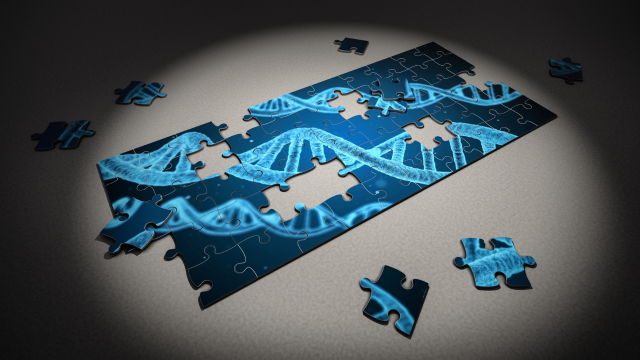Understanding the Importance of Genetic Testing in Pregnancy
Expectant parents experience a transformational experience during pregnancy. Naturally, parents are concerned about the health and well-being of their unborn child along with the joy and anticipation. Advances in medical science have enabled genetic testing during pregnancy, providing parents with valuable insights into their child’s genetic makeup.
First Trimester Screening: Early Detection and Risk Assessment
The first trimester is when expectant parents can undergo various genetic tests to assess chromosomal abnormalities in their fetus. One commonly performed test combines ultrasound measurement of nuchal translucency (a fluid-filled space at the back of the baby’s neck) with maternal blood screening for specific proteins and hormones. Combining these tests provides an estimate of the risk of the baby developing certain chromosomal disorders such as;
- Down syndrome
- Edwards syndrome
- Patau syndrome
In addition, non-invasive prenatal testing (NIPT) has become one of the most powerful tools for early genetic screening. As part of NIPT, cell-free fetal DNA is analyzed in the mother’s blood in order to determine whether chromosomal abnormalities are present. Compared with traditional screening methods, this test provides greater accuracy and peace of mind to expectant parents.
RELATED: How Many Eggs Does a Woman Have?
Diagnostic Testing: Confirming Genetic Abnormalities
Chromosome abnormalities and other genetic conditions may be detected during screening tests in some cases. It may be necessary to recommend diagnostic tests in such cases in order to provide a definitive diagnosis. chorionic villus sampling and amniocentesis are two of the most commonly used diagnostic tests.
How CVS Genetic Testing is Done
In CVS, a small sample of placental tissue is taken for genetic testing. Usually, between 10 and 12 weeks of pregnancy, this test is conducted. Contrarily, amniocentesis entails taking a small sample of amniotic fluid, which contains fetal cells, for genetic analysis. The typical time for amniocentesis is between 15 and 20 weeks of pregnancy.
In order to help expectant parents, make educated decisions regarding their pregnancy and future plans, these diagnostic tests can give them extensive information on the presence of particular genetic disorders.
RELATED: What to Expect at Your 14-Week Ultrasound
Expanded Carrier Screening: Assessing Inherited Conditions
Genetic testing during pregnancy not only determines the likelihood of chromosomal abnormalities but also provides the chance to analyze the existence of inherited diseases. In expanded carrier screening, the DNA of the parents is examined to determine whether they are carriers of a number of hereditary diseases, including cystic fibrosis, sickle cell disease, and Tay-Sachs disease.
Why Do Parents Typically Get a Genetic Test for Their Unborn Child?
Expectant parents can learn more about the possibility of passing these illnesses on to their offspring by determining their carrier status. This information provides informed family planning choices and, in some situations, early interventions or therapies to improve the child’s health results.
RELATED: Is There a Best Sex Position to Get Pregnant With Twins?
Genetic Counseling: Guiding Families through the Process
Expectant parents may experience intense emotions related to genetic testing during pregnancy. As a result, genetic counseling is essential for assisting families in the process. Genetic counselors are educated experts who offer knowledge, support, and direction to parents, assisting them in understanding the significance of the results of genetic tests and navigating their alternatives.
What They Do in Genetic Counseling

Genetic counselors address any worries or queries that parents may have in addition to explaining the technical components of the tests. They aid in the interpretation of findings, the discussion of possible consequences, and the facilitation of well-informed choices. Expectant parents are given the knowledge they need to make decisions consistent with their values and objectives thanks to genetic counseling.
Ethical Considerations and Emotional Impact
Ethical Issues With Genetic Testing
The possibility of stigmatization or discrimination based on the results of genetic testing is another ethical issue. It’s critical to foster a welcoming and judgment-free environment where parents can openly express their worries and receive the necessary counseling and assistance. Additionally, laws and regulations must be in place to shield people and families from prejudice based on genetic information.
How Genetic Testing Affects Emotions
Empowering Choices and Shaping the Future
Prenatal genetic testing has the ability to give parents more control by giving them vital information about the well-being of their unborn child. It enables parents to decide on possibilities for medical interventions, specialized care, or even preparing for the particular requirements of a kid with a genetic problem.
Additionally, the knowledge gained through genetic testing advances medical research and adds to our understanding of genetics. It makes it possible for researchers and medical practitioners to create tailored therapies, interventions, and preventive measures, ultimately leading to an improvement in the general health of future generations.
Limitations and Future Perspectives
Future Possibilities of Genetic Testing
In the future, we can anticipate even more thorough and convenient prenatal genetic testing. Technology advancements, such as the application of next-generation sequencing, have the potential to offer a more thorough investigation of the fetal genome. Furthermore, combining genetic testing with additional prenatal diagnostic methods, including fetal imaging, may improve our capacity to detect and enhance various conditions.
Final Thought
Prenatal care has been changed by genetic testing throughout pregnancy, which offers priceless information about the unborn child’s genetic well-being. It encourages early interventions, enables tailored treatment, and equips parents to make educated decisions. To ensure the responsible and advantageous use of genetic testing, it is crucial to approach it with careful consideration of ethical issues, emotional support, and ongoing research. We can sculpt a healthier future for future generations by utilizing the potential of genetic testing.



